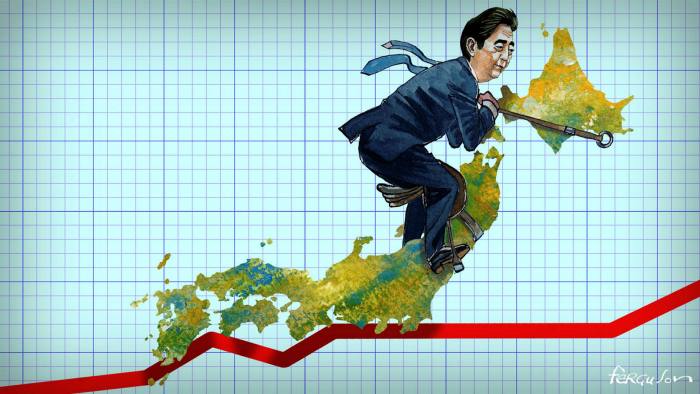Japan: Abenomics without Abe
With Abe in office, Japan has become politically stronger and more socially stable than ever despite facing numerous challenges and setbacks.
Just a few days after setting Japan’s record for longest prime minister term, Japan's Prime Minister Abe Shinzo announced his resignation, forcing his governing Liberal Democratic Party to quickly choose its new leader who will become his successor. Again like in 2006 when he for the first time resigned as the youngest prime minister in Japan's history, his cited health concerns as the reason for his decision to leave power. This time, it was clearly true.
| Photo: James Ferguson/FT |
For Japan, an era is coming to an end: the Abe era, which was characterized by a doctrine that bears his name as Abenomics, by his movements to adjust Japan's peaceful constitution, open the country to foreign workers and tourists, repositioning Japan in the profoundly changing and challenging modern world, newly balancing Japan's relations with its most important partners and make Japan's presence and influence wider around the world.
His record long term in office is just one of Abe's main achievements since becoming Prime Minister in 2012. With Abe in office, Japan has become politically stronger and more socially stable than ever despite facing numerous challenges and setbacks, regardless of whether many of its ideas and intentions could not fully succeed. It did not solve all the problems this country has been facing for a long time, but it has begun a process that freed Japan from its state of lasting political, social, legal and economic paralysis. How far Japan has moved since then is another matter, but this country has already got rid of stagnation. All these are his legacy.
And his legacy is also Abenomics, if not his most important legacy. Abenomics is surely not Japan's savior, but a key to solving Japan's urgent problems just as Japan needs solutions. Abenomics was not perfect for Japan, perhaps not enough, but better than nothing. Like everything else, Abenomics also has its dark side, especially the very high rate of public debt. But it's the only right answer. Abenomics with Abe was an unprecedented experiment. Abenomics without Abe would be another experiment in Japan with now unpredictable results. Abe's successor, whoever will be, would not immediately quit Abenomics. And all of Abe's political legacies would surely continue, not forever, but for a certain period of time.
Disclaimer: The views expressed by Ambassador Tran Duc Mau are of his own and do not necessarily reflect the views of Hanoitimes.












